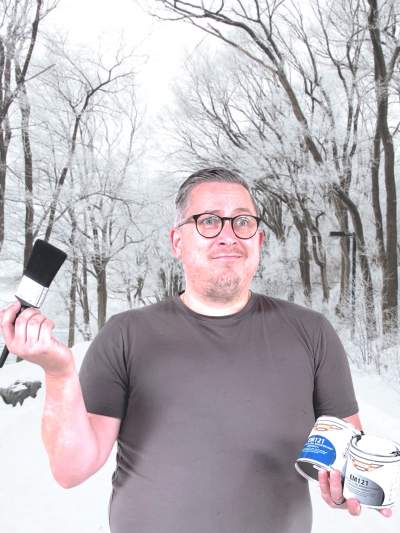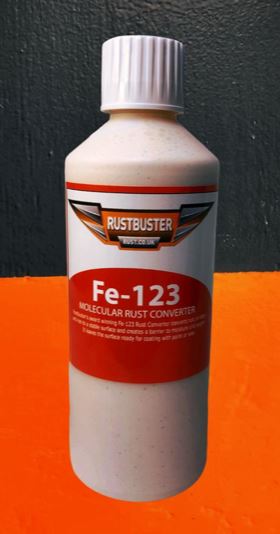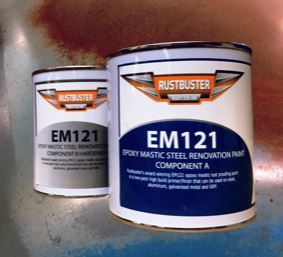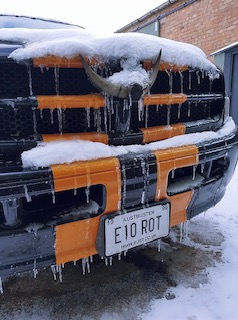A typical winters day in the UK is short of light with the sun rising at around 7am and the nights draw in early at around 4pm. Once you’re home from work motivation to do anything in the evenings is a challenge. Average temperatures often range between 0-7°C although the sun can be out it can also feel freezing.
Now if you have a beautifully heated garage stop reading here!! You sir are a lucky man, good for you.
However, with the cold around the corner and knowing that I’ll be digging out the thermals for working in the Rustbuster garage I thought some hints and tips might help.

So, what challenges could you face when applying coatings during winter?
Algae or mould growth, blooming, dew point or cracking are all common coating issues that are temperature sensitive however temperature is also an area that must be considered. During this blog we are going to discuss application of Fe-123 and Epoxy Mastic 121 at 7°C.
The first thing to discuss is the 7°C, is this the ambient temperature or the metal surface temperature? Ambient temperature doesn’t necessarily equal the surface temperature. Coating data sheets will advise you on the ambient temperature and drying times of the coating will be based on this. If the surface to be coated is lower than 7°C could the surface be too cold? Yes, if the surface to be coated in under 0°C then it’s simply too cold to coat unless you have a very specialist coating.
At under 10°C Fe-123 can be applied to dry surfaces however as you are relying on a conversion to take place this happens very slowly; you may assume at this point the best thing to do is heat the surface but air movement is what’s required. Heating the surface prior to application would help but during the conversion process it’s pointless and will just make the thinner (water) evaporate quicker.

At under 10°C Epoxy Mastic 121 will still continue to cure in around 7 days, EM121 will continue to cure even if the temperature hits as low as 0°C however full cure extends to around 21 days!! Due to the lower temperature, you may gain a longer pot life of the product but the overcoating intervals are also extended. If in doubt, please contact Rustbuster for further information.

I mentioned earlier some of the paint failures that can come from weather conditions, lets look at these a little deeper, this will help us to reduce the chances of experiencing them.
Algae or mould can grow on steel stored in damp conditions, this growth is typically loose on the steel surface and needs to be thoroughly removed before coating. I have always used a mix of warm water and bleach to wash down the affected areas before neutralising with fresh water. You can then proceed with your preparation process.
Blooming, this can happen during the curing process of a coating when either the temperature takes a significant drop during the first phase of curing, or the coating becomes damp early in the curing process. Blooming of a coating is really just an aesthetic issue, the coating’s structure itself is normally intact.
Dew Point, Rustbuster have always spoken about the importance of dew point and have a tool to help you calculate it here. When painting steel in cold or damp conditions, be wary of the dew point. This is the temperature at which condensation forms on the steel. As soon as this happens or is likely to happen you cannot paint: no if’s or but’s, just STOP painting until you take corrective action.
Cracking of a paint system can occur when a coating that hasn’t fully cured has been overcoated too early. Remember the colder it is the longer it can take coatings to cure, it’s important to remember this and the check the overcoating interval at the temperatures you are currently experiencing, if its 7°C your overcoating time needs to be based on this not a higher temperature.
Painting during the colder winter months really isn’t impossible but all of the above considerations should be made and if done the project will be successful. If you have any questions at any time, please email or call for further assistance.




